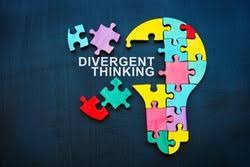Chess and Dictionary: Check Mate
At one point over the course my academic journey, I became intellectually drawn to six areas of linguistic knowledge: phonological, morphological, orthographic, etymological, visual, and semantic. Each of those areas can be more fully understood when accompanied by knowledge of the Webster-Merriam dictionary. Learning how to unlock the linguistic treasures in the dictionary allowed me to appreciate not only the complexity of our American English sound structure, but also value the power of language. I craved knowledge of linguistics after I first learned how to read at 18 years old. It was my fix and motivated me to increase the rate at which I absorbed book knowledge.
During one of my teaching sessions with an adult learner, we were talking about aspects of linguistics (i.e., learning to read) and the conversation of chess came up.
It turns out that chess and learning how to read may have some similarities. The benefits of chess include improving cognitive skills, boosting self-confidence and self-worth, and increased attention span and memory capacity, as well as providing opportunities to exercise logic. These same characteristics are ones that students can achieve when they learn about the six areas of linguistics in-depth. Learning linguistics help students appreciate the structure of language, become independent readers, and possibly even become addicted to gaining new knowledge from the dictionary. I am not a chess player but believe there are many similarities between the game and gaining word knowledge. Here are my thoughts:
· Playing chess brings people together over a shared passion and those learning to read (i.e., word study) may demonstrate the same sentiment when studying the six areas of linguistics with peers as those who play!
· Chess can be an excellent education tool for schools as it is a low-cost activity where students can participant before, during and after school, and even form an extracurricular club. Similarly, studying the American English sound structure through the dictionary is a low-cost activity and one that can be implemented through a school extracurricular (linguistic) club.
· Playing chess develops creativity as students showcase their own styles and personalities through various playing strategies. Studying the dictionary and mastering the various aspects of linguistics can foster the creativity of readers.
· Chess players build confidence if they put the time into studying, competing in various tournaments, analyzing mistakes, and memorizing certain strategies. With continuous repetition students may nurture a sense of confidence and become resilient in their approaches. When learning to be better readers, students can build confidence by studying the six areas of language through analyzing specific spelling patterns, knowing origins of language, and competing in spelling bees.
· Chess helps users develop problem-solving skills, which is similar learning how to read. Students will be challenged with various spelling patterns (i.e., orthographical & orthographical units) that they must analyze and assemble to build words. Chess players and readers have opportunities to think ahead, not rush their decisions, and evaluate those decisions.
· Chess and reading activate areas of the brain that exercise logic, recognize patterns, analyze and synthesize information, and rely on working memory.
Ultimately, it is a process of metacognition that supports both the chess player and the reader. Seeking to master a full range of linguistic skills liberated me, and I feel like a winner. Check Mate!!
Follow LA Shakoor of Urban Kings & Queens Chess Academy to learn more.
Email: Urban.kings@yahoo.com
IG: shakoorchess




Comments
Post a Comment